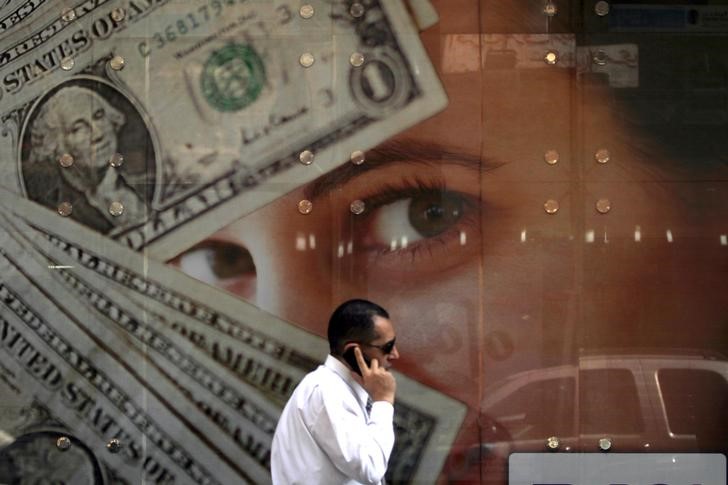* Philippine peso firms 1%, bond and FX markets reopen for
trade
* Outlook highly uncertain despite stimulus measures
-analyst
* South Korea relaxes key FX regulation to boost dollar
supply
(Adds text, updates prices)
By Rashmi Ashok
March 18 (Reuters) - The Philippine peso rose on Wednesday
as the country's foreign exchange and bond markets reopened, but
other units traded in a tight range amid rising doubts over the
effectiveness of stimulus measures to stem the fallout from the
coronavirus outbreak.
Lending support to U.S. markets overnight, President Donald
Trump's administration on Tuesday pursued a $1 trillion stimulus
package that could deliver $1,000 checks to Americans within two
weeks to buttress an economy hit by coronavirus. However, the news failed to keep Asian equities afloat, and
most regional currencies also came under pressure against a
relatively firm dollar.
"While the large fiscal stimulus could stem the risk of a
U.S. recession... the economic outlook remains highly uncertain
at this point in time and does not yet warrant venturing out
significantly into risk-on waters," wrote Han Tan, market
analyst at brokerage FXTM, in a note.
"Such broad caution should ensure a supportive environment
for the greenback until the coronavirus-inspired fears start to
fade away."
The only significant gainer in the region, the offshore
Philippine peso PHP= gained nearly 1.3%, marking its biggest
intraday percentage gain since May, 2016.
The unit had barely moved in the previous session, while its
onshore counterpart PHP=PDSP did not trade at all, as
authorities shut down stock, bond and foreign exchange markets
in a bid to protect traders from the virus. With bonds and foreign exchange now trading, the country's
stock exchange is set to follow suit on Thursday.
Meanwhile, central banks continued to intervene to support
markets from a severe shortage of U.S. dollar funding, as banks
and companies rush to secure stockpiles of the currency amid
fears about future cash flow. South Korea said on Wednesday it will relax a key foreign
exchange regulation to encourage banks to supply more dollars in
local markets as the coronavirus pandemic drives a global rush
for the U.S. currency. The won KRW=KFTC traded 0.3% firmer, but was not able to
hold on to gains of nearly 1% it clocked earlier in the session.
Central banks of Thailand, India and Japan have all
conducted measures to boost liquidity in local markets and ease
stress for dollar funding amid the virus outbreak. following table shows rates for Asian currencies against
the dollar at 0618 GMT.
CURRENCIES VS U.S. DOLLAR
Currency Latest bid Previous day Pct
Move
Japan yen 106.810 107.67 +0.81
Sing dlr 1.431 1.4288 -0.16
Taiwan dlr 30.245 30.250 +0.02
Korean won 1239.700 1243.5 +0.31
Baht 32.410 32.31 -0.31
Peso 51.030 51.7 +1.31
Rupiah 15200.000 15160 -0.26
Rupee 74.168 74.26 +0.12
Ringgit 4.355 4.348 -0.16
Yuan 7.019 7.0060 -0.18
Change so far in 2020
Currency Latest bid End 2019 Pct
Move
Japan yen 106.810 108.61 +1.69
Sing dlr 1.431 1.3444 -6.06
Taiwan dlr 30.245 30.106 -0.46
Korean won 1239.700 1156.40 -6.72
Baht 32.410 29.91 -7.71
Peso 51.030 50.65 -0.74
Rupiah 15200.000 13880 -8.68
Rupee 74.168 71.38 -3.76
Ringgit 4.355 4.0890 -6.11
Yuan 7.019 6.9632 -0.79
